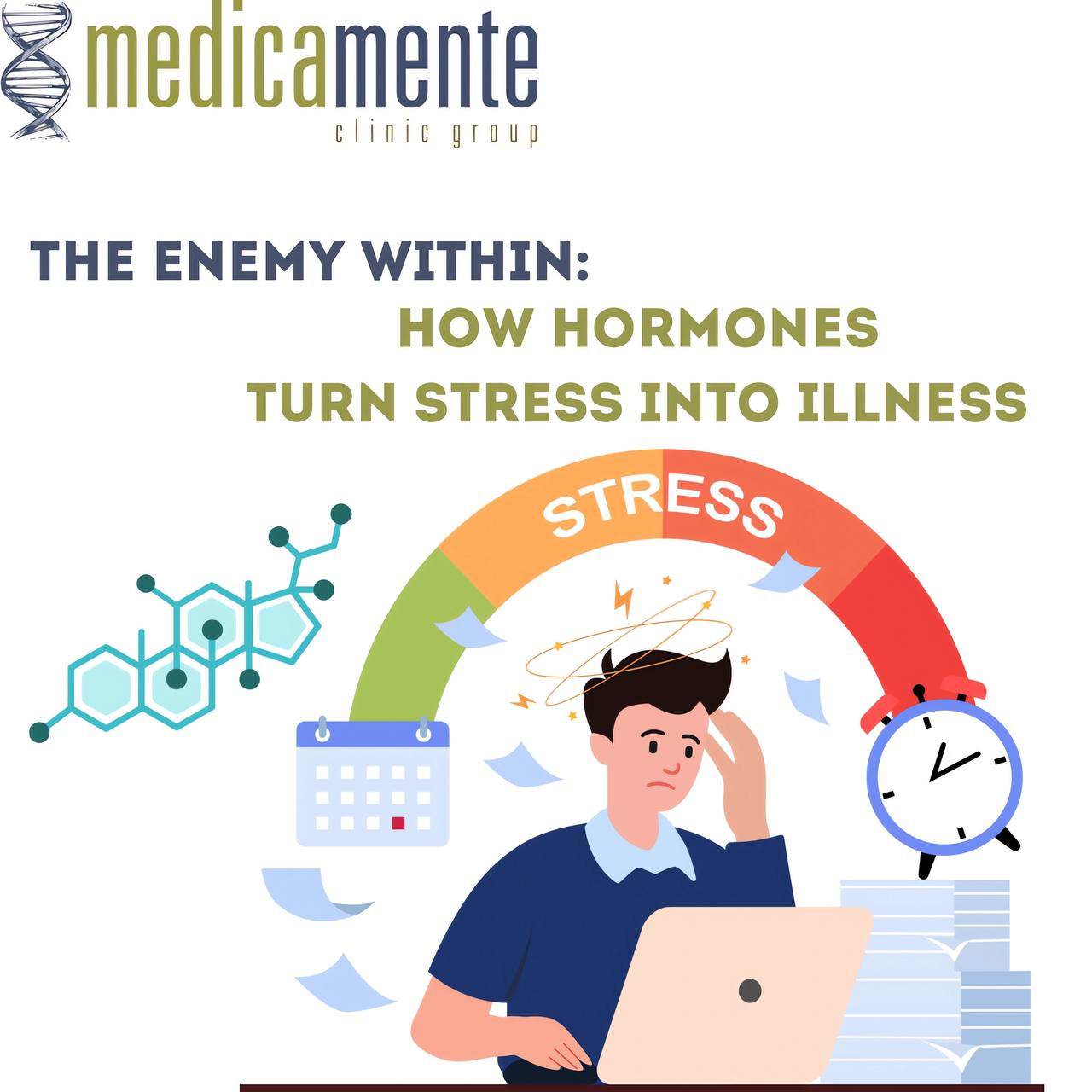
Chronic stress triggers the intensive production of hormones such as cortisol, adrenaline, and others.
A normal physiological response becomes pathological. Under these conditions, symptoms of mental, endocrine, cardiovascular diseases, and other pathological states may appear.
Cortisol: The "Stress or Fear" Hormone
Cortisol is produced by the adrenal glands when a person feels threatened or experiences intense emotional and physical stress.
The Role of Cortisol
Cortisol typically converts fats into fatty acids and then into glucose. It is also produced to improve brain function, support the nervous system, and stimulate heart function.
The Consequences of Excess Cortisol
Chronic stress leads to an excess of cortisol, resulting in increased blood pressure and blood sugar levels, obesity, and thinning of the skin. Immune system activity is suppressed, making the body susceptible to the development and exacerbation of infections.
#ChronicStress #CortisolEffects #StressManagement #HealthAwareness #MedicaMenteClinicPrague
Write a review
Required fields are marked with *
Categories
- News (42)
- Therapy (31)
- GP (23)
- Endocrinology (8)
- Cardiology (8)
- Ortopedics (4)
- Dermatology (3)
- urology (1)
- Check-up (1)
- Ultrasound (1)
Articles
Archive
- February 2026 (8)
- January 2026 (8)
- December 2025 (6)
- November 2025 (6)
- October 2025 (6)
- September 2025 (6)
- August 2025 (7)
- July 2025 (4)
- June 2025 (11)
- May 2025 (9)
Categories
- News (42)
- Therapy (31)
- GP (23)
- Endocrinology (8)
- Cardiology (8)
- Ortopedics (4)
- Dermatology (3)
- urology (1)
- Check-up (1)
- Ultrasound (1)









Comments (0)